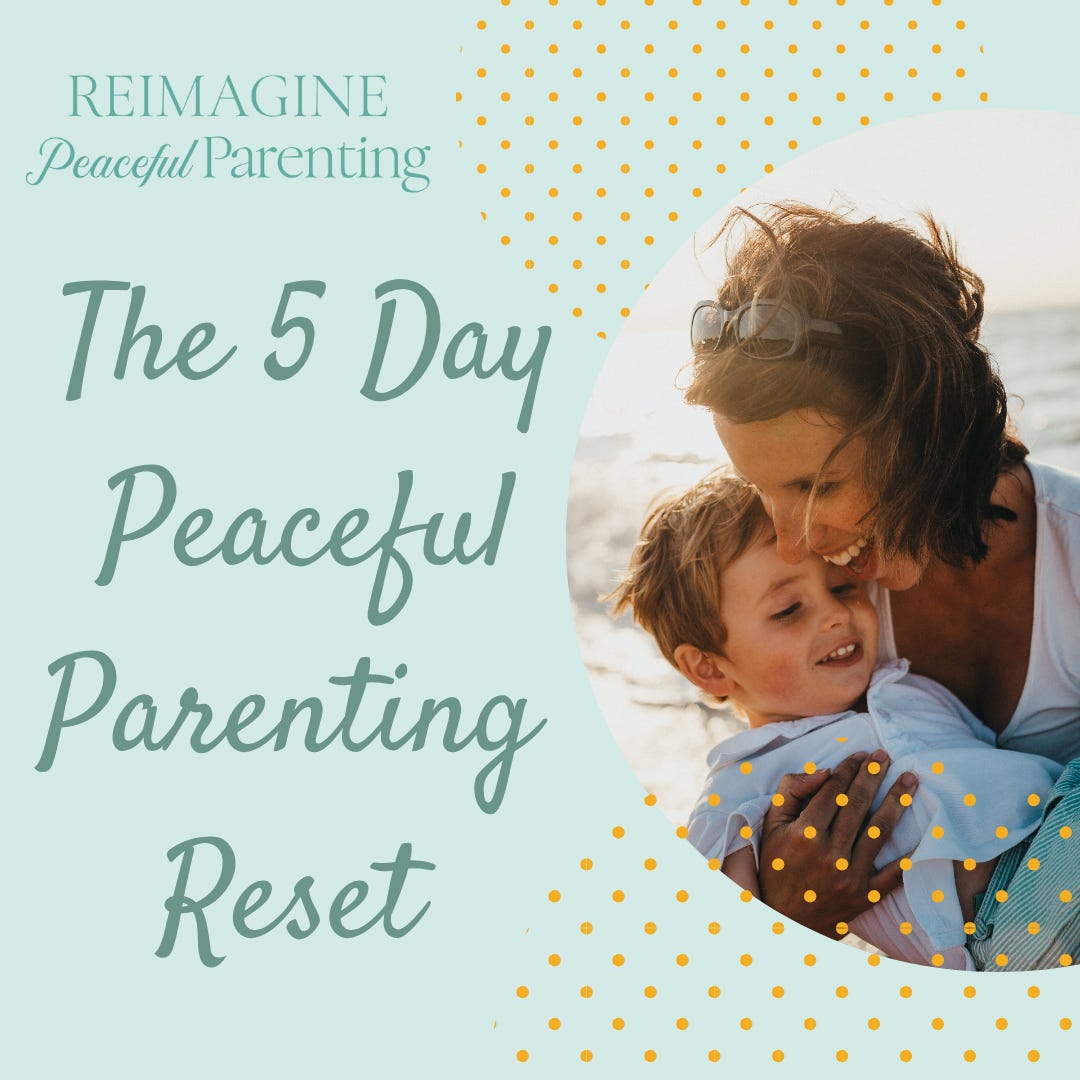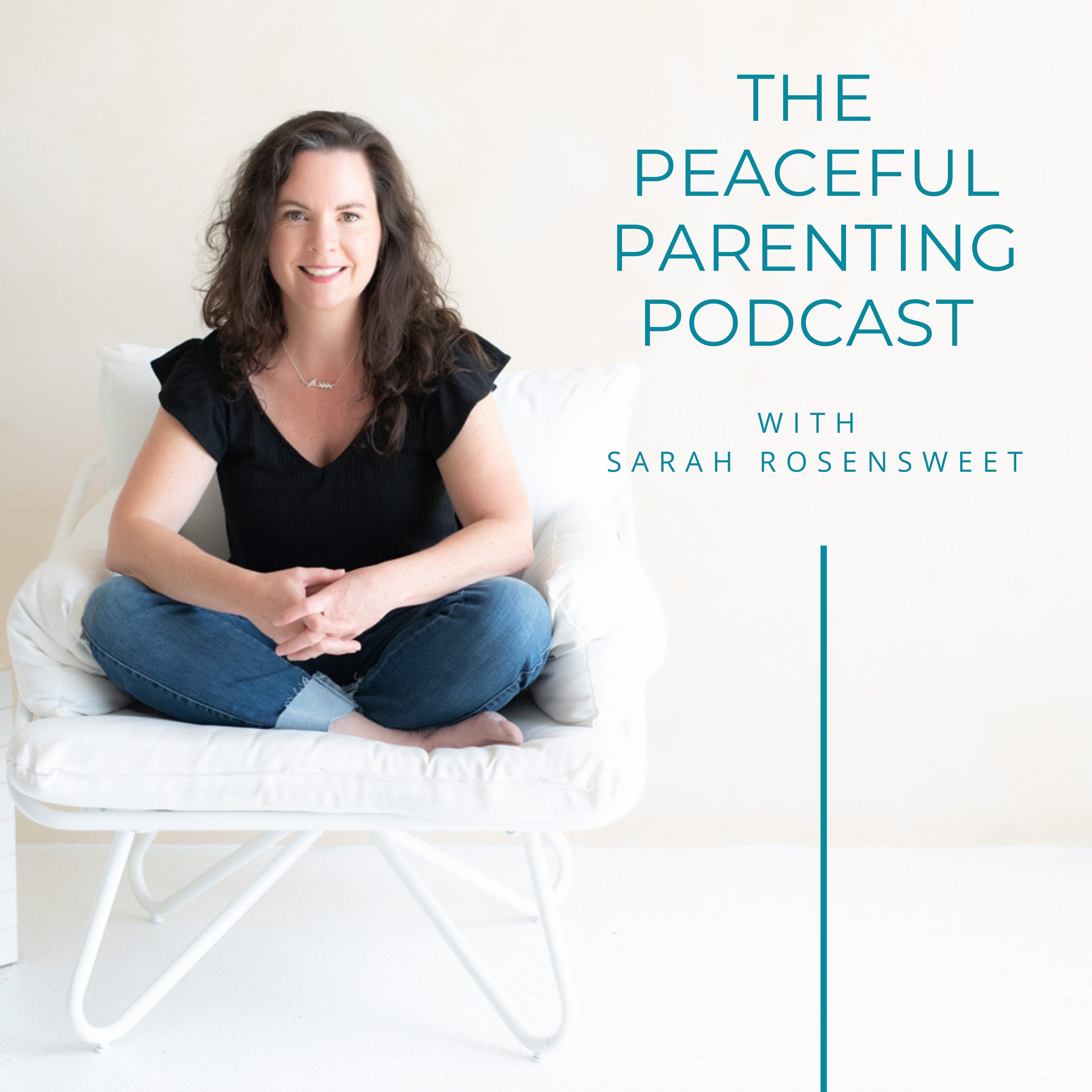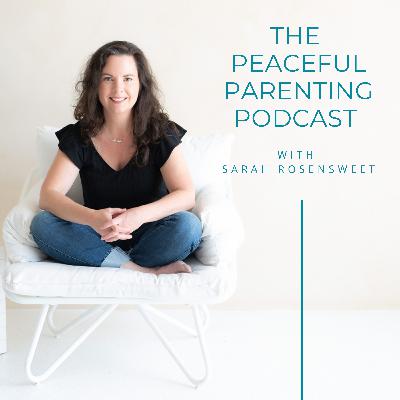Coaching Call with Laurel and Derrick: Navigating Sibling Rivalry AND MORE: Episode 012a
Description
You can listen wherever you get your podcasts, OR— BRAND NEW: we’ve included a fully edited transcript of our interview at the bottom of this post.
In this episode of The Peaceful Parenting Podcast, we have a coaching call with Laurel and Derrick.
This call is such a good one because we cover ALL the big ideas behind the peaceful parenting approach, while applying them to real life scenarios in a home with three kids.
Topics include sibling rivalry, nurturing our kids, self regulation, how to handle kids asking lots of questions and always wanting more, what parenting without punishment looks like, and more!
**If you’d like an ad-free version of the podcast, consider becoming a supporter on Substack! > > If you already ARE a supporter, the ad-free version is waiting for you in the Substack app or you can enter the private feed URL in the podcast player of your choice.
Know someone who might appreciate this post? Share it with them!
We talk about:
* 7:00 What it looks like when our children truly respect us
* 9:00 7-year-old refusing to get dressed
* 12:10 Why it is okay baby and nurture our kids
* 14:00 Tuning into our own self regulation
* 18:00 Mindset shifts to give our kids the benefit of the doubt
* 19:30 How to handle sibling rivalry
* 24:00 Don’t try to make it a teachable moment
* 38:00 When kids ask questions over and over
* 41:00 Why kids always want more!
* 45:00 Helping kids see how their actions affect other people
* 55:00 Why kids lie and what to do
* 57:00 Natural consequences, boundaries, and limits
* 1:02 Peaceful Parenting Mantras
Resources mentioned in this episode:
* Yoto Player-Screen Free Audio Book Player
* The Peaceful Parenting Membership
* Free Stop Sibling Fights E book
* Free How To Stop Yelling at Your Kids e-course
xx Sarah and Corey
Your peaceful parenting team- click here for a free short consult or a coaching session
Visit our website for free resources, podcast, coaching, membership and more!
>> Please support us!!! Please consider becoming a supporter to help support our free content, including The Peaceful Parenting Podcast, our free parenting support Facebook group, and our weekly parenting emails, “Weekend Reflections” and “Weekend Support” - plus our Flourish With Your Complex Child Summit (coming back in the spring for the 3rd year!) All of this free support for you takes a lot of time and energy from me and my team. If it has been helpful or meaningful for you, your support would help us to continue to provide support for free, for you and for others.
In addition to knowing you are supporting our mission to support parents and children, you get the podcast ad free and access to a monthly ‘ask me anything’ session.
Our sponsors:
YOTO is a screen free audio book player that lets your kids listen to audiobooks, music, podcasts and more without screens, and without being connected to the internet. No one listening or watching and they can’t go where you don’t want them to go and they aren’t watching screens. BUT they are being entertained or kept company with audio that you can buy from YOTO or create yourself on one of their blank cards. Check them out HERE
Transcript:
Derrick: Hi, good morning.
Sarah: Hi Derek. Nice to meet you. Hi Laurel. Hi. Are you a firefighter, Derek? I’m—yeah, I’m actually—I see you’ve got your sweatshirt.
Derrick: Yeah. Just a heads up, I may have to jump off if we get a call.
Sarah: Okay. Well, so nice to meet you guys. So you’ve got three—boy, girl, girl. And what would you like to talk about today?
Laurel: I think I just love your whole—I’ve sent Derek a couple things—but I just love your whole premise of peacefulness and remaining calm when it’s easy to get angry. Mm-hmm. And just some tools for doing that. I guess like some basic things, because we would both like to say where, you know, we have like, you know, the streaks where we’re all calm, calm, calm, and then just—and then her, yeah, limit. Yeah.
And so yeah, just tools for when that happens. We have very typical age-appropriate kind of response kids, mm-hmm, that need to be told 80 times something. And so it’s frustrating. And then how to help them kind of see—without bribing, without threatening discipline, without all of that. Yeah. Like how to have a better dialogue with our kids of teaching respect and teaching kind of “we do this, you do this.”
Sarah: Yeah. Yeah. So, I mean, maybe. Okay. So there’s always gonna be situations where it’s hard to stay calm, you know? Just being a parent—like of course your kids are gonna push your buttons sometimes. But rather than—so, we do always start with self-regulation.
And what I mean by self-regulation isn’t that you never get upset. It’s that when you do get upset, you know how to calm yourself and take a minute, take a breath—whatever you need to do—so that you don’t yell. Because yelling hurts our relationship with our kids. You mentioned respect. I think there’s an old idea of respect that used to mean that kids were afraid of their parents, right?
But real respect is that you care what another person thinks. Like, that’s real respect. I don’t want to do this because I don’t want my dad or my mom to be unhappy with me—not that I’m afraid of what’s gonna happen if I do it, but I care what they think and they care what I think. And that’s how I define respect. True respect doesn’t mean that you’re afraid of somebody; it means that you care what they think, right?
So when we yell, we chip away at that. Like yeah, we could get them to do what we want through yelling or threatening things or taking things away, but we’re chipping away at our relationship with them. And that’s really the only true influence.
And as your kids are getting older, you’re gonna see that you can control them when they’re little, right? Because you can pick them up and move them from one place to another or whatever. But there’s a famous quote by a psychologist that says, “The problem with using control when kids are young is that you never learn how to influence them, which is what you need as they get older.” Right? You need to be able to influence them, to get them to do what you would like them to do. And it’s all about the relationship. That’s really what I see as the most important thing.
So back to what I was saying about yelling—yes, that’s really important to be working on—but there’s also: how do I be more effective so the kids will listen to me and I don’t have to ask 80 times? How do I get their attention in an effective way? How do I get them to cooperate the first time or at least the second time?
So it’s a combination of learning how to calm yourself and stay calm when things are hard, and also being more effective as a parent—not asking 25 times, because that just trains them to ignore you. Like, “Oh, I don’t have to do it until they yell,” or “I don’t have to do it until they’ve asked me 25 times.”
If there’s something really unpleasant you had to do at work that you didn’t want to do, you might also ignore your boss the first 24 times they asked you until you knew they were really serious, right? Mm-hmm. I mean, you wouldn’t, but you know what I mean. If they can keep playing a little bit longer, they will keep playing a little bit longer.
So I think what would be helpful is if you gave me some situations that have happened that you find challenging, and then we can do a little bit of a deeper dive into what you could have done instead, or what you could do next time if a similar thing comes up.
Laurel: Yeah. I mean, for my daughter, for example, the middle one—she’s so sweet, she’s such a feeler—but then when she gets to the point where she’s tired, hungry, it’s all the things. She often doesn’t wanna pick out her clothes. Something super simple like that.
But when I’m making lunches and the other kids are getting ready and all the things, I just have to have her—I’m like, “You’re seven, you can pick out clothes.” I give her some options, and then she’ll just lay on the floor and start screaming, “You don’t care! Why don’t you pick out my clothes?”
And then instead of me taking the time that I know I need to, I just tell her, “You have one minute or else this—so you lose this.” I just start kind of like, “This is yesterday.” You know, so she doesn’t wanna get dr
























